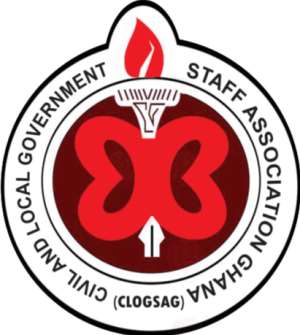
The Civil and Local Government Staff Association, Ghana (CLOGSAG) has issued a nationwide strike threat over delays in the implementation of its conditions of service agreement, signed on December 20, 2024 under the Akufo-Addo-Bawumia administration. While the agreement remained unenforced for eight years, CLOGSAG now expects the newly inaugurated Mahama administration to fulfill it within just five months, raising pertinent questions about governance continuity, labor policy, and leadership accountability.
Public sector labor agreements should transcend political transitions rather than become battlegrounds for partisan maneuvering. Leadership must ensure equitable policy execution, balancing the legitimate concerns of workers with the realities of fiscal constraints and administrative restructuring.
Tracing the Timeline: Agreements vs. Implementation
Under Akufo-Addo-Bawumia Administration
December 20, 2024 – Agreement signed, outlining salary revisions and improved employment terms. No industrial action or strike threats despite non-implementation.
Under President Mahama Administration
January 7, 2025 – New administration assumes office, inheriting pending agreements. May 6, 2025 – CLOGSAG sends a follow-up letter demanding immediate action. June 16, 2025 – Ultimatum issued, threatening a nationwide strike by June 30, 2025 if demands remain unmet.
Ethical Leadership and Responsible Governance
Expecting swift resolution of an eight-year-old issue within five months presents a governance dilemma—balancing worker welfare, fiscal sustainability, and administrative due diligence. While labor unions deserve fair treatment, the timing of strike threats raises concerns about selective pressure. Leadership must remain principled, resisting undue political influences while demonstrating commitment to fairness and policy continuity.
As Dr. Kwegyir Aggrey wisely said, “The surest way to fail is to refuse to determine success by principles.”
Lessons from Past Public-Sector Strikes
Ghana’s labor history is rich with cases of delayed policy implementation leading to industrial action:
2022 Nurses’ Strike – Agreement signed in January 2022, but implementation stalled until July 2023, forcing protests. Judicial Service Workers’ Strike (2021) – Agreement finalized in September 2020, enforced only 16 months later after a strike.
These examples highlight the critical need for enforceable agreements and realistic execution timelines to prevent repeated crises.
Recommendations: Ensuring Sustainable Labor Agreements
To prevent politicization and guarantee equitable labor policy execution, leadership should:
1. Publish a governance transition report outlining outstanding labor agreements with structured implementation timelines.
2. Engage independent negotiation panels to balance feasibility with worker demands.
3. Establish legally binding timelines to prevent delays and industrial action in subsequent administrations.
4. Enhance arbitration mechanisms for proactive conflict resolution rather than reactive strikes.
5. Foster trust in public institutions by honoring commitments before crisis escalation, ensuring governance remains solution-driven rather than pressure-induced.
Leadership as a Moral Imperative
Governance must be grounded in ethical leadership, ensuring labor agreements are executed fairly, without partisan interference. The transition of power should not lead to misplaced pressure, but rather to a structured fulfillment of commitments. As John Stuart Mill aptly noted:
“A government cannot give stability unless it first earns credibility.”
Labor equity and national stability must remain above political cycles, ensuring trust, fairness, and responsible governance—not reactionary demands.
Retired Senior Citizen
Teshie-Nungua
[email protected]


